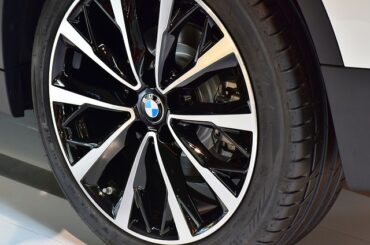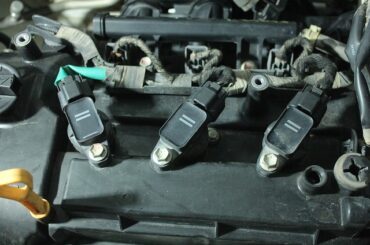Have you ever experienced that unsettling moment when you turn the key in your car’s ignition, and it responds with an unexpected shudder and shake? The phenomenon of a car shaking when turned on is not only disconcerting but can also be a sign of underlying issues that demand attention. In this article, we will delve into the common reasons behind why your car may shake when you turn it on, and we’ll explore potential solutions to ensure that your vehicle operates smoothly and safely.
Question: Why is my car shaking when I turn it on?
Contents
Understanding Their Role in Car Shaking
When your car greets you with an unexpected shake upon ignition, it’s often the engine that holds the key to this unsettling phenomenon. Engine-related problems can disrupt the smooth operation of your vehicle, resulting in vibrations that you can feel through the steering wheel and the entire car. Let’s explore the key culprits behind engine-induced car shaking:

1. Engine Misfire:
This can lead to an uneven power distribution, causing the vehicle to shudder during ignition.
Common causes include worn-out spark plugs, malfunctioning ignition coils, or clogged fuel injectors.
2. Low-Quality Fuel:
The quality of the fuel you put into your car matters more than you might think. Low-quality or contaminated fuel can result in poor combustion, leading to engine misfires and vibrations.
To avoid this issue, it’s essential to fill up your tank with clean, high-quality fuel from reputable sources.
3. Dirty Air Filter:
The air filter in your car plays a crucial role in ensuring the engine receives clean and properly filtered air. A clogged or dirty air filter restricts the airflow to the engine, affecting the air-fuel mixture and potentially leading to car shaking.
Regular air filter maintenance is vital to prevent this problem.
4. Vacuum Leaks:
Vacuum leaks in the engine’s intake system can disrupt the delicate balance of air and fuel, resulting in irregular engine performance and, consequently, vibrations during startup.
These leaks can be caused by cracked hoses, loose connections, or damaged gaskets.
Sources of Car Shaking
Beyond engine-related issues, problems with various mechanical components in your vehicle can also contribute to the unsettling sensation of car shaking when you turn it on. These mechanical components, when compromised, can lead to vibrations that reverberate through the entire car. Here, we’ll explore the role of these components in causing car shaking:
1. Faulty Engine Mounts:
Engine mounts are the unsung heroes of your car’s operation. They are responsible for securing the engine in place and dampening vibrations. When engine mounts become worn out or damaged, they can no longer absorb the engine’s vibrations effectively, leading to car shaking.
Regular inspection and maintenance of engine mounts are crucial to ensure their optimal functioning.

2. Exhaust System Problems:
Issues in the exhaust system, such as a damaged muffler or exhaust pipe, can contribute to car shaking. When the exhaust system is compromised, it can affect the flow of exhaust gases, causing irregular engine operation and vibrations.
Periodic inspections of the exhaust system can help identify and address problems early.
3. Transmission Issues:
Problems with the transmission, whether it’s an automatic or manual transmission, can result in vibrations during startup or gear changes. Common issues include a worn-out clutch, transmission fluid problems, or gear synchronization issues.
Prompt diagnosis and repair of transmission issues are essential to maintain the smooth operation of your vehicle.
Impact on Engine Performance
Electrical and battery issues in your car can significantly influence its engine performance, potentially leading to the unsettling experience of car shaking when turning it on. These problems disrupt the vital electrical systems that power your vehicle. Here’s a closer look at how electrical and battery issues can affect your car’s engine:
1. Weak or Failing Batteries:
Your car’s battery is the heart of its electrical system. When the battery is weak or failing, it may struggle to provide the necessary electrical power to start the engine and run essential components.
A weak battery can lead to insufficient energy for a smooth engine start, causing vibrations and engine hesitation during ignition.
2. Other Electrical Problems:
Beyond the battery, other electrical components and systems in your car, such as the alternator, ignition system, and sensors, play a critical role in engine performance. Malfunctions in these areas can lead to poor ignition and erratic engine behavior.
These problems can result in car shaking, misfires, and overall reduced engine efficiency.
Understanding Temporary Shaking
While the previously discussed issues are common culprits behind car shaking, it’s important to recognize that sometimes, extreme weather conditions can temporarily contribute to this unsettling experience. Here, we’ll explore how environmental factors play a role in these temporary vibrations:
1. Extreme Weather Conditions:
Cold or exceptionally hot weather can have temporary effects on your car’s performance during startup. In colder climates, the engine oil becomes thicker, making it more challenging for your engine to turn over. In hotter weather, excessive heat can impact fuel combustion.
These environmental factors can lead to a brief, but noticeable, shudder or shake when starting your car.
2. Not Necessarily a Serious Issue:
It’s essential to note that these temporary vibrations caused by weather conditions may not necessarily indicate a serious underlying problem with your vehicle. Sometimes, it’s merely a reaction to the environment.
However, it’s still a good practice to keep an eye on your car’s overall performance to ensure no other issues arise.

3. Importance of Allowing the Engine to Warm Up:
In colder weather, allowing your engine to warm up before driving is a recommended practice. This gives the engine and oil time to reach their optimal operating temperature, reducing the chances of vibrations and ensuring smoother performance.
While modern vehicles are designed to handle a wide range of temperatures, this precaution can help prevent temporary shaking.
Why is my car shaking when I turn it on?
Car shaking upon ignition is not just an inconvenience; it’s a sign that warrants your attention. As we’ve seen, various factors, from engine misfires to weather conditions, can be behind this issue.
Understanding these causes is essential for safety and vehicle maintenance. We urge you to act promptly if your car shakes when starting. Your safety and driving comfort depend on it.
how long does a patched tire last
The Unforeseen Influence of a Name
How to Prevent a Blown Rod in Engine 2023






